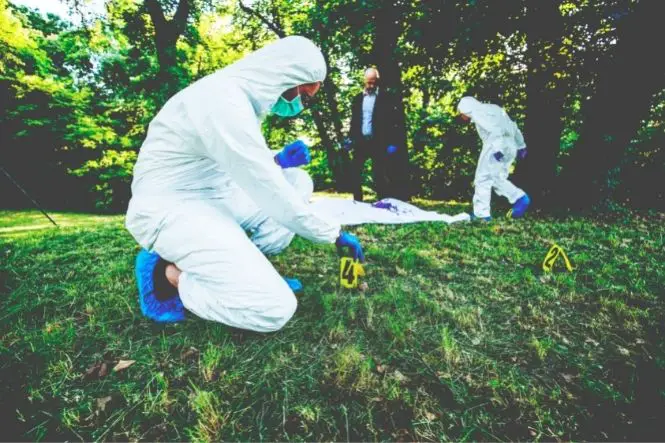Forensic science is a fascinating field that combines scientific knowledge with criminal investigations. It is the application of scientific methods and techniques to collect, analyze, and interpret evidence from crime scenes and other types of incidents.
Forensic science falls under the broader category of forensic studies, which includes forensic anthropology, forensic psychology, forensic toxicology, and forensic entomology, among others. It is an interdisciplinary field that draws on various scientific disciplines, such as biology, chemistry, physics, and mathematics, to investigate crimes and support legal proceedings.
The Importance of Forensic Science
Forensic science plays a crucial role in criminal investigations and the criminal justice system. It helps to establish the facts of a case and provide evidence that can be used in court to convict or exonerate suspects. Forensic scientists work closely with law enforcement agencies and legal professionals to ensure that justice is served and innocent people are not wrongly convicted.
Different Branches of Forensic Science
Forensic science encompasses several sub-disciplines, each of which plays a unique role in investigating crimes and analyzing evidence. Some of the major branches of forensic science include:
Forensic Biology
Forensic biology involves the analysis of biological evidence, such as blood, semen, hair, and DNA, to identify suspects and link them to crimes. Forensic biologists use techniques such as DNA profiling, blood spatter analysis, and serology to analyze biological evidence and provide crucial information to investigators.
Forensic Chemistry
Forensic chemistry involves the analysis of chemical evidence, such as drugs, fibers, and other trace materials, to identify suspects and link them to crimes. Forensic chemists use techniques such as chromatography, spectrometry, and microscopy to analyze chemical evidence and provide critical information to investigators.
Forensic Anthropology
Forensic anthropology involves the analysis of skeletal remains to determine the identity, age, sex, and other characteristics of the deceased. Forensic anthropologists use techniques such as osteology, facial reconstruction, and forensic odontology to identify remains and provide crucial information to investigators.
Forensic Psychology
Forensic psychology involves the application of psychological principles and theories to legal proceedings. Forensic psychologists work with law enforcement agencies, courts, and correctional facilities to evaluate suspects, provide expert testimony, and provide counseling to victims.
Conclusion
Forensic science is an important field that combines scientific knowledge with criminal investigations. It plays a crucial role in the criminal justice system and helps to ensure that justice is served. With its interdisciplinary approach and various sub-disciplines, forensic science offers a fascinating and rewarding career path for those interested in science and criminal justice.
Frequently Asked Questions about Forensic Science
Here are some frequently asked questions about forensic science and its various branches:
- What is forensic science and what does it involve?
Forensic science is the application of scientific methods and techniques to investigate crimes and analyze evidence. It involves the use of various scientific disciplines, such as biology, chemistry, physics, and mathematics, to collect, analyze, and interpret evidence from crime scenes and other incidents. - What are the different branches of forensic science?
Some of the major branches of forensic science include forensic biology, forensic chemistry, forensic anthropology, and forensic psychology. Each sub-discipline plays a unique role in investigating crimes and analyzing evidence. - What role does forensic science play in criminal investigations?
Forensic science plays a crucial role in criminal investigations and the criminal justice system. It helps to establish the facts of a case and provide evidence that can be used in court to convict or exonerate suspects. Forensic scientists work closely with law enforcement agencies and legal professionals to ensure that justice is served. - How do forensic scientists collect and analyze evidence from crime scenes?
Forensic scientists collect and analyze evidence from crime scenes using a variety of techniques and tools. They may use DNA profiling, blood spatter analysis, chromatography, spectrometry, microscopy, osteology, facial reconstruction, or forensic odontology, among other methods, to analyze evidence and provide crucial information to investigators. - What skills and education are required to become a forensic scientist?
To become a forensic scientist, you typically need a bachelor’s degree in a scientific discipline, such as biology, chemistry, or forensic science. Many forensic scientists also have a master’s or doctoral degree in a related field. In addition to a strong background in science, forensic scientists must have excellent analytical skills, attention to detail, and the ability to work well under pressure. They must also be able to communicate effectively with law enforcement agencies and legal professionals.
Regenerate response


